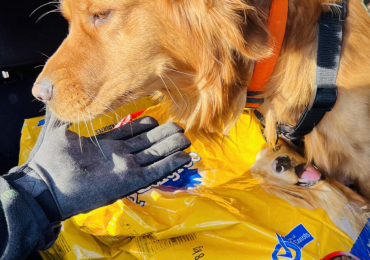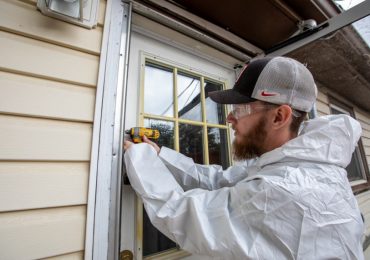There’s a rising tide of research emphasizing that giving to charity is more than just a warm fuzzy feeling—it packs an emotional punch and makes a genuine difference in our communities. One significant route families are taking is to help out critters who could really use some love and care. Although donating to all animal charities can make a big difference, consider giving to farmed and wild animal charities, whose work benefits animals who suffer the most.
1. Direct Donations to Animal Charities
According to a study by the ASPCA, animal charities form a critical lifeline for countless animals.1 In fact, studies show that direct financial contributions to animal charities can have immediate, measurable effects on their operations.2 When families come together, pooling individual resources, their cumulative donation can have an even stronger effect.
To make sure that your family’s donation makes the biggest difference for animals, it’s crucial to gauge the actual difference these chosen charities are making. As highlighted by Animal Charity Evaluators, assessing the charity’s track record for achieving positive outcomes, cost-effectiveness, and transparency should be a key part of the decision-making process.
How Your Family Can Donate:
Financial Contributions: Direct monetary support can address charities’ needs, from organizational costs to project and campaign expenses. We need to make sure our bucks go to those animal charities that really put their money where their mouth is—that are clear about how they use the funds and are honest, too. Financial support of effective animal welfare organizations can create lasting change.
Remarkably, financial contributions have proven instrumental in the success of Movement Grants recipients. These grants have been a game-changer, fueling innovative campaigns for animal rights, spearheading critical research efforts, and crafting tools that push the boundaries of what’s possible in animal welfare.
Action Point:
As many animal charities may not typically accept non-monetary gifts, it is advisable for families to consult directly with the charity’s Philanthropy or Donations manager. By asking about what the charity really needs and their current projects, families can smartly decide whether to give unrestricted or targeted donations (5). This way, they make sure that their help is directed where it’s needed most.
2. Family Volunteering: A Mutual Growth Experience
Engaging in volunteer work is known to strengthen family bonds and develop empathy. Animal charities give families a real shot at making the world better. Additionally, families can explore a variety of volunteering opportunities that align with their interests and abilities:
In-Person Activities:
Assisting at VegFests or conferences
Participating in plant-based mentorship programs
Online Opportunities:
Engaging in virtual volunteer activities
Getting involved in online social change movements
Educational Enrichment:
Taking free courses offered by animal charities, such as those listed by Animal Charity Evaluators
Engage Now:
These diverse roles not only give you a real taste of animal advocacy, but they also arm families with the know-how to make their volunteering pack more punch.
In addition to these hands-on activities, it’s crucial for families to engage in conversations about the importance of giving and kindness. Discussing topics such as animal welfare and charity can significantly enrich children’s understanding and empathy toward animals and broader societal issues. Resources such as Motherhood Community offer insightful articles and discussions that help in nurturing compassion and social responsibility within families. These resources can be particularly helpful in providing guidance on how to approach these topics with children of various ages, ensuring that the message is both age-appropriate and impactful.
3. Raising Awareness: Elevating the Cause Beyond Direct Action
The power of community cannot be understated. One of the most effective ways households can throw their weight behind animal charities is by cranking up the volume on their cause.
Educational Workshops: Hosting or attending workshops about the importance of animal welfare can create a ripple effect in communities.3 But getting local folks jazzed about animal welfare could start a chain reaction of good vibes in the community.
Social Media Campaigns: With the rise of digital communication, a well-orchestrated social media campaign can raise awareness and funds for animal charities. Sharing success stories or educational content can engage a broader audience.
School Initiatives: Involving schools in charity work can have a dual impact. Schools getting involved in charity teaches kids to care while helping others. Initiatives can range from poster campaigns to school fundraisers.
4. Collaborative Efforts: Building Bridges with Local Businesses
One often overlooked avenue in supporting animal charities is partnering with local businesses.4 Teaming up in this way can not only stoke the community spirit but also supercharge the positive impact we’re making for our four-legged, winged, and aquatic pals.
Business Sponsorships: Many businesses are seeking opportunities to showcase their corporate social responsibility. Local animal charities need our help, so teaming up with them through sponsorships or donations of stuff they really need is a solid way for businesses to give back.
Fundraisers at Local Outlets: Holding fundraisers at local businesses can raise the visibility of farmed and wild animal charities and promote the cause.
Promotional Campaigns: Encourage local establishments to offer promotional deals where a portion of the proceeds goes to the animal charity. Local businesses could run promotions where some of the money goes to the animal charity, helping their bottom line while raising funds for a good cause.
Be the Bridge:
Families can initiate conversations between animal charities and businesses, acting as ambassadors. Forming these alliances not only strengthens the resources of the charity but also sparks a greater community interest in this important issue.
Wrapping things up, let’s act as catalysts—donating, volunteering, or spreading the word about animal charities can spark significant changes in these animals’ lives.
Donating to animal welfare groups lets families make a meaningful contribution during the holidays. Whether through targeted donations, volunteering, or raising awareness, each action drives change. Act now!
American Society for the Prevention of Cruelty to Animals (n.d.)
Humane Society of the United States (n.d.)
Royal Society for the Prevention of Cruelty to Animals (n.d.)
National Federation of Humane Societies
The post Supporting Animal Charities as a Family appeared first on the Animal Charity Evaluators blog.
Leave a comment








